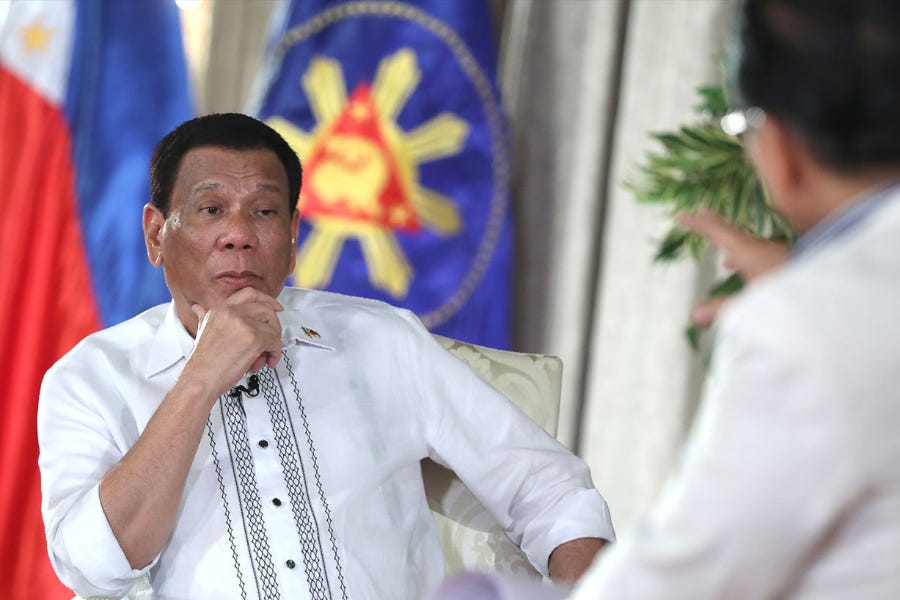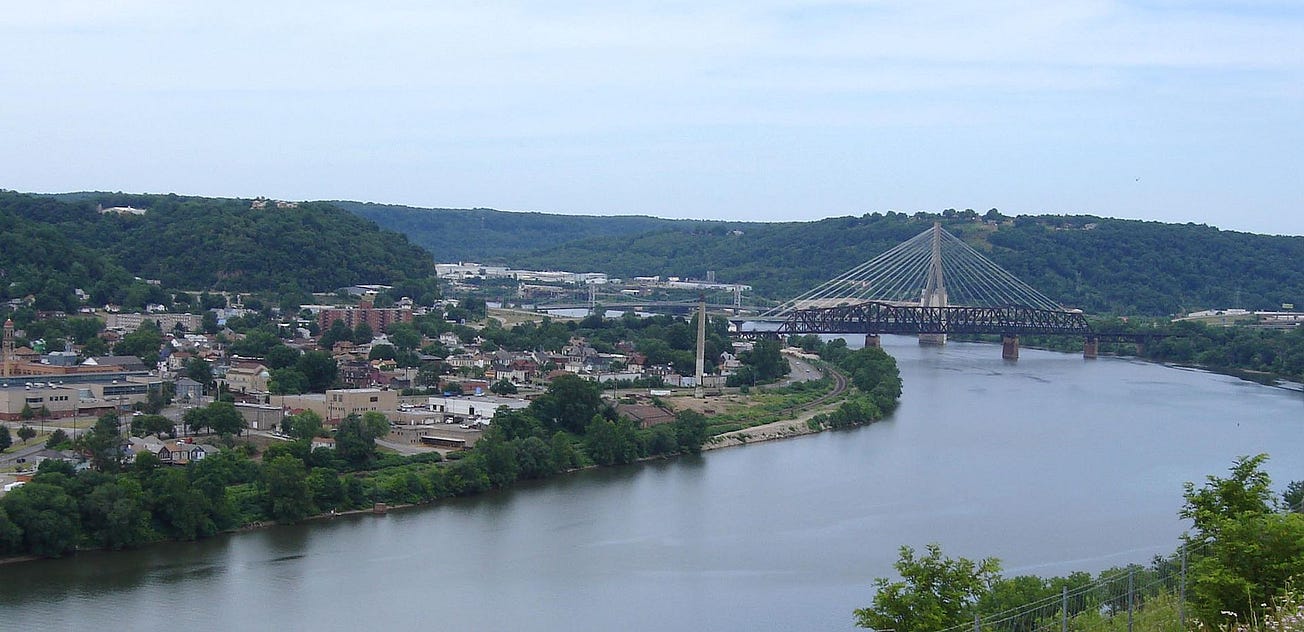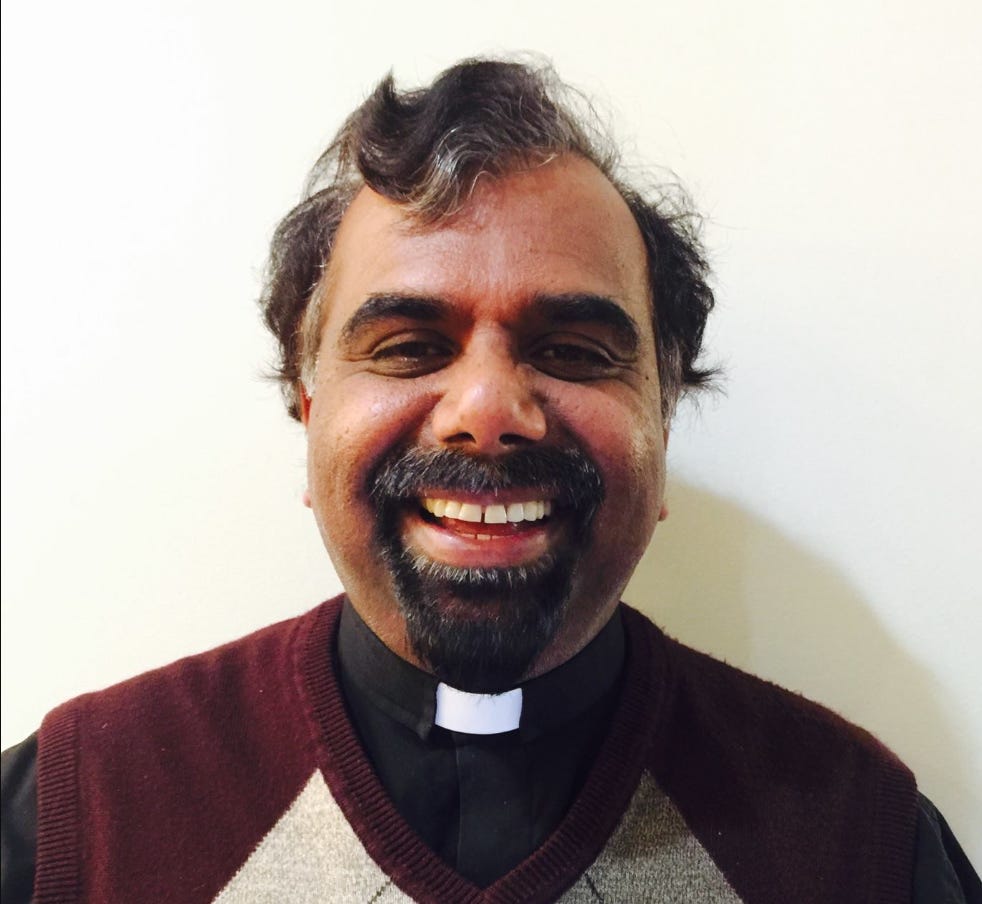Happy Friday friends,
Earlier this week, JD and I were on a Zoom call with some friends and subscribers, talking through what The Pillar is, and what we can do better.
One of the things that came up was how there is a real community of faith that has grown up around The Pillar. It’s true, and it’s no thanks to us; as deeply grateful as we are for it, we didn’t plan it, and couldn’t have made it happen if we tried. And we talked a lot about prayer, and praying for each other within the community of our readers.
We want to get better about making that easier, so we’re looking into how we can set up some more avenues for this Pillar community of ours to talk to each other and pray for each other. Those are good things.
Here’s the news.
The News
The bishops of Nigeria have called on government leaders to end the escalating security crisis in the country.
“Insecurity has remained a persisting problem in our country as insurgents, herdsmen militia, bandits, and the so-called unknown gunmen have continued to unleash terror in different parts of the country. Kidnapping for ransom has continued. Some of our communities have been completely taken over by criminals,” the bishops wrote.
“The throng of internally displaced persons in our country is ever-growing, with many children out of school, making them easy prey to human traffickers.”
—
The Vatican announced yesterday that two bishops from mainland China will be attending next month’s synod on synodality.
The temptation here is to view the bishops as likely shills for the CCP and in the pocket of Beijing. But it’s worth considering that they were both appointed by the pope years before the Vatican-China deal, and in one case had to wait nine years until the government allowed him to publicly assume his role.
If it strikes you as a puzzle deciding what to make of the men, who accepted their roles at a time when it drew government fire for doing so but are now considered acceptable ambassadors for Chinese Catholicism by the Party, it should.
—
A brief and controversial meeting between Pope Francis and an Iraqi militia leader was arranged outside of the usual diplomatic channels, we reported this week.
Rayan al-Kildani, the head of Iraq’s 50th Brigade militia and the Babylon Movement political party, is on a U.S. government sanctions list and the country’s Cardinal Louis Raphaël Sako blames him for driving him from Baghdad and turning the government against his leadership of the local Church.
Yet al-Kildani managed to grab a photo-op with Francis at a papal general audience earlier this month and spin it as a private meeting and personal blessing. But how?
Well, sources close to the Secretariat of State told us this week that the Iraqi ambassador bypassed the normal protocol for securing baciamano tickets, end-running around the Vatican diplomatic office and going straight to the papal household.
—
Pope Francis accepted the resignation of the leader of the Catholic Church in Liechtenstein Wednesday, paving the way for potentially significant changes in the tiny principality.
The Vaduz-born prelate originally served as the bishop of the Swiss Diocese of Chur, which then included Liechtenstein. But following a breakdown of relations within the diocese, he was appointed as the head of the newly created Vaduz archdiocese, which was formed out of Chur’s territory and extends to Liechtenstein’s borders.
The diocese is small, 28,000 Catholics, and Haas has been a not uncontroversial figure in recent years. A supporter of the Traditional Latin Mass, Haas announced in 2021 that the Vaduz archdiocese would not be taking part in the global synodal process launched by Pope Francis.
For the moment, Bishop Benno Elbs, head of the neighboring Diocese of Feldkirch in Austria, has been named as Vaduz’s apostolic administrator. But what happens next could be very interesting.
—
After Bishop Joseph Perry retired Tuesday as auxiliary bishop of Chicago, it remains unclear whether the bishop will remain chair of the U.S. bishops’ conference ad hoc committee on racism.
While USCCB statutes and bylaws prohibit an officer of the conference from serving beyond his 75th birthday, they do not explicitly state the requirements for continuing in office for the chairman of an ad hoc committee, who is appointed by the conference president, rather than elected by the conference membership.
USCCB officials were unable to comment on the situation, and Perry’s future role seems a genuinely open question at the conference.
I find that slightly curious, since he was only asked to step into the role in April of this year — the same month he turned 75 and had to submit his resignation to the pope. I’d have imagined that someone, somewhere, would have considered the possibility that Perry’s resignation could take effect in the near term, and gamed out what would happen.
Most likely, I think, the hope was that Rome would let his resignation ride at least until November. Then the ad hoc committee’s three-year term is up and the USCCB will have to decide on its future status.
For the moment, though, it's not clear what the situation is.
The University of Dallas is known for its rigorous undergraduate Core Curriculum and robust graduate and professional programs in business, ministry, education and the humanities. With campuses in Texas and Italy, UD is committed to an education that forms students intellectually, socially and spiritually for a life well-lived. Find out more at udallas.edu/pillar.
The Rupnik implication
I started this week by writing an analysis about the frankly mystifying statement from the vicariate of the Diocese of Rome following its visitation of the Centro Aletti, the artistic community founded and led by Marko Rupnik.
As I wrote on Tuesday, I simply cannot fathom what the pope’s diocesan vicar, Cardinal De Donatis hoped to gain by issuing a statement saying, in effect, that there’s nothing wrong here and good on the center’s community for not speaking out about the litany of sacrilegious abuse claims against their founder and erstwhile director.
I was especially baffled by the decision to include a summary conclusion by the investigator throwing shade on Rupnik’s canonical penal process, which saw him briefly excommunicated for attempting to sacramentally absolve one of his sexual partners.
But as I thought about it more, something else struck me: How did the investigator have access to files of Rupnik’s penal process in the first place? Files like that are covered by the pontifical secret, and absolutely not for sharing when they contain details of a crime committed in the confessional.
So I ended up writing a second analysis, trying to sort through the possible answers for how the diocese’s investigator got hold of 2019 penal case files on a priest whom Cardinal De Donatis has previously said he has no responsibility for, no canonical authority to prosecute, and against whom he never received an allegation to investigate.
To give you the short version, it seems to me there are three possibilities:
The investigator didn’t have access to the official files, but decided to conduct his own private inquiry into a closed case under the pontifical secret and concerning the sacramental seal.
Someone from the Society of Jesus or the Dicastery for the Doctrine of the Faith (DDF) leaked him some or all of the files, presumably with the intention of trying to undercut the credibility of Rupnik’s conviction.
The diocese’s investigator for the Centro Aletti was granted official access to the otherwise sealed files, and invited to draw his own conclusions and criticisms, even though the case was nowhere near his mandate.
None of these options, absent some wider context we don’t know, answers the underlying question of why De Donatis put out a statement basically calling into question the DDF’s ability to handle cases it alone is competent to treat, and picking a fight with the Jesuits over their handling of one of their own.
But all of the options suggest there is some motivation somewhere to rehabilitate Rupnik’s reputation. That in itself is shocking when you consider that he’s accused by a long list of women of sexually abusing them in overtly blasphemous ways — to a degree so sickening that if they were written into a movie as fiction Catholics everywhere would be rightly outraged.
Since I wrote my analysis, quite a few people have told me, online and off, that I’m somehow ducking the “obvious conclusion” that Pope Francis must be behind all of this, given he’s the guy at the top of the Diocese of Rome, the DDF, and the Society of Jesus.
I would agree that is one possible theory — one which picks up street cred when you consider he met with Maria Campatelli, a theologian and Rupnik’s successor as director of the Centro Aletti, last week, just before the vicariate’s statement came out. Campatelli is also a public and strident defender of Rupnik.
But consider the implications of that theory, for a moment.
It would mean that Pope Francis was using his diocesan curia to subvert publicly the authority of his Vatican’s top disciplinary department and the credibility of his own religious society — and doing so on behalf of a man accused of arguably more appalling crimes, by far more people, than some of the most notorious names in the canon of disgraced churchmen.
That would be, I think, utterly and rightly catastrophic for the pope’s credibility on abuse reform, and a legacy-defining scandal. And I’d like to think that Pope Francis would be as appalled at the idea he’d do such a thing as I am.
Of course, if that’s what happened, and if we find out about it, we’ll report it, no question. But it’s not a conclusion to which I am willing to leap, nor entertain as rage-bait, absent any reportable evidence to support it.
So, that being said, you can read my analysis here.
Fall in the air
Autumn begins tomorrow, according to the farmers’ almanac my wife gets me every year for Christmas.
I think she thinks she’s making fun of me and my constant nagging to move us to a farm somewhere deep in Amish Country. But given how often she asks me what the weather will be, the joke is on her.
While the season officially turns this weekend, I date the change from the county fair we always attend in Charles County, Maryland, and that was last week.
It’s an event I adore, corresponding as it does closely enough to the fair in “Charlotte’s Web” to make me nostalgic for the happy rural life I fantasize about daily, but has only ever existed in my head.
The county fair is also the one day of the year on which my wife buys into my rural cosplay fantasy, and we trundle along in yard work boots we bought some years ago from Tractor Supply, more or less for this express purpose.
Our daughter went last year, though she was too young to understand what was going on. This year, she proved herself her mother’s daughter, a proper city girl, and clung to me in genuine terror as I tried to introduce her to a cow.
Whatever the kid’s urban sensibilities, I truly enjoy the exhibitors’ enthusiasm for their produce and animals, and the vendors’ endless creativity in finding new things to sell me fried between two donuts or wrapped in bacon.
The fair is also one of the few places where I find the spontaneous familiarity of friendly strangers to be enjoyable, rather than alarming.
The whole event, and the people there, are just wonderfully sincere. It’s unironic, entirely unaffected, and devoid of the plastic sheen that attaches to so much seasonal celebration. It is a kind of autumnal vaccination against the cloying and insipid. A shot of hard cider to brace you against the saccharine reek of pumpkin spice.
Autumn is a messy season that smells of sodden leaves, wet dirt, and woodsmoke. And I rather love the juxtaposition of the harvest amid the colorful death throes of the changing foliage — the full fruit of a life is only realized at its end, after all.
I think this is the reason I revolt, in both senses, at the plastic presentation of the season which has begun its annual spread across the city and suburban landscape. There’s something perverse to me about a wipe-clean, industrially flavored Fall.
The whiff of fire and decay in the air can be deeply comforting, in that they are essentially real, and speak to the truths of our progress through time. Especially compared to the taste of a scented candle in a Starbucks cup.
September is also, of course, the beginning of the academic year and back to work time for most, after a summer break.
Our human season of beginning again is mapped over the natural season of things coming to an end. I think that’s important and instructive; as Bill Shatner once observed to Kirstie Alley.
Everything we undertake, at work, at home, as we go about our daily lives, is a harvest we are sowing for the future. Some day, we’ll be told to gather in the fruits of our labors, and our efforts will be judged at the big county fair in the sky.
I’ll be thinking about that as we start a busy few months here at The Pillar, heading to Rome next month for the synod, and looking toward the USCCB meeting in November.
See you next week,
Ed. Condon
Editor
The Pillar








